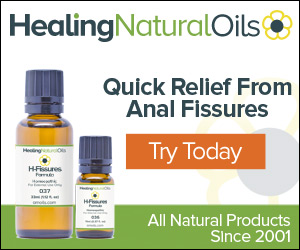Anal fissures can affect children and newborns more frequently and more severely than adults can. Because their bodies are still in the process of development and they are still on their way towards improving and developing their body and their immune system, they are susceptible to a lot of diseases and different medical conditions.
When a newborn develops anal fissures, it can prove to be detrimental to their development, and could increase the stress that felt by the parents. As newborns, they cannot express what they feel with words and so can only tell if they are in pain through crying, which of course can cause much stress to the parents especially if it happens frequently.
Anal fissures are more common with breastfed newborns than those that are not; mostly because breastmilk encourages digestion, and can therefore lead to faster movements in the digestive tract that eventually can lead to diarrhea. Diarrhea is, obviously, one of the main causes of anal fissures. Anal fissures happen when the anal canal experiences excessive abrasion from the constant movement of large amounts of stool. Anal fissure is actually much easier to spot in newborns than in adults, since blood is much more frequent coming from the fact that the tissues in their anal canal are still developing.
To find out if your child has anal fissures, you can go to a pediatrician and have your child examined. While you are with a doctor, you can also get tips on how to treat anal fissures in newborn breastfed babies.
When answering the question of how to treat anal fissures in newborn breastfed babies, the first thing that you need to consider is making sure that your baby releases soft stool. This will ensure that abrasion will not happen. To ensure this, include a lot of sterilized water in your baby’s diet to reduce the likelihood of making them eliminate hard stools. Another thing you can do is to put a small amount of either liquid paraffin or benefiber when you are breastfeeding your baby. These do not act as laxatives, but they do serve as a way to make the fecal matter softer and easier to pass. Paw paw ointment can be put on the baby’s fissured area right before your baby begins to eliminate. This can help the baby cope with the outgoing stool.
Anal fissures do not go away after just one or two days, so you need to be patient. This condition can take from a week to several weeks to heal. As long as the baby is experiencing anal fissures, or as long as the fissures are not healing, you should continue in making the bowels they produce as soft as possible, although you still have to make sure that the bowels they produce are not in liquid form. In addition, you should also ensure that the fissures do not significantly impact the comfort of pooping by putting on the necessary lubricants in your baby’s anal canal.


